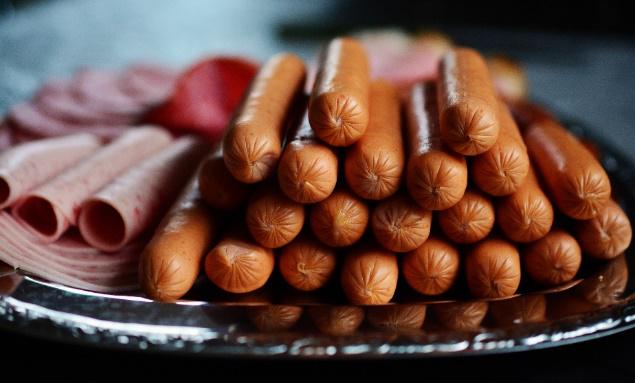A novel technology for the formulation of meat products with a healthier profile
| Technology code 21-AUT-02 |
Status OPEN |
Applications mode First call for expression of interest |
Access model As specified in the call |
Code: 21-AUT-02
The Opportunity
Meat products, such as sausages, salami etc., are very popular food products. Yet, they typically contain high amounts of saturated fat and cholesterol, originating mainly from the pork backfat often used for their formulation. The current nutritional recommendations focus on limiting the intake of these ingredients, and favoring the consumption of vegetable oils (such as olive oil) that have a healthier fatty acids profile. A novel technology that allows for the successful incorporation of vegetable oils, including olive oil, into meat products has been developed, that can help to improve the nutritional characteristics and marketability of such novel meat-based products.
Our Offer
Fat provides unique sensory properties (texture, mouthfeel, hardness) to meat products. Hence, the reduction or replacement of saturated animal fat from these foods may result in serious and undesirable changes in physical and sensorial characteristics of the final products.
A novel and promising technology of ‘structuring’ different vegetable oils (including olive oil) by forming oleogels has been developed. Oleogelation has been proposed as an alternative method to utilize liquid vegetable oils to mimic hardstock structures that resemble the properties of conventional fat, reducing saturated animal fat and improving the nutritional profile of final products. Through the oleogelation process, an edible liquid vegetable oil, such as olive oil, is converted into a gel-like structure without modifying its chemical characteristics, by the addition of soluble lipophilic low-molecular-weight oleogelators. Vegetable oil-based oleogels can be formulated by different ways to have varying textural characteristics and can be incorporated into various meat products for the substitution of pork backfat (lard) that is typically used. The resulting novel meat products can be designed to have similar organoleptic characteristics with conventional products, but a significantly improved nutritional profile with decreased saturated fat and cholesterol contents.
The Technology
The principle of this technology is based on the utilization of certain low-molecular-weight compounds (oleogelators) to structure liquid vegetable oils into solid-like materials that can be used as animal fat substitutes. Various compounds have been used as oleogelators, including monoglycerides, fatty acids, alcohols, lecithins, mixtures of phytosterols and oryzanol, ethylcellulose, ceramides or waxes. The oleogelators usually form thermoreversible oleogels that are typically based on supramolecular assemblies of the oleogelators via non-covalent interactions. The formation of oleogels is based on self-assembly and/or crystallization of the oleogelators that are capable of entrapping liquid vegetable oil. Thus, oleogels possess solid-like texture and desirable mechanical properties (plasticity and elasticity), while eliminating trans- and minimizing saturated fatty acids and cholesterol.
Advantages & Innovations
- The use of animal and saturated fat can be reduced or eliminated in meat products
- The nutritional profile of the meat products can be improved by the addition of olive oil
- The meat products maintain their desirable organoleptic characteristics
- The production technology is not altered significantly
Stage of Development
This novel technology is an innovative process of the production of oleogels. Oleogels from different vegetable oils have been produced, utilizing an array of different oleogelators. The next step requires an industrial large-scale validation and production in order to ensure the effectiveness of the process in large scale and manufacturing.
Partner Search
FOOD INNOVATION RI is seeking for Partners with the capacities to develop this technology. The ideal Partner shall be meat product producer with a strong retail network or a food ingredient producer eager to further develop this technology in a relevant and operational environment. Alternative options may also be considered.
Offered by
Department of Food Science and Technology, School of Agriculture, Aristotle University of Thessaloniki, Thermi-Thessaloniki, 57001, Greece
Contact

Prof Costas BILIADERIS
This email address is being protected from spambots. You need JavaScript enabled to view it.
Food Chemistry – Food Physics


